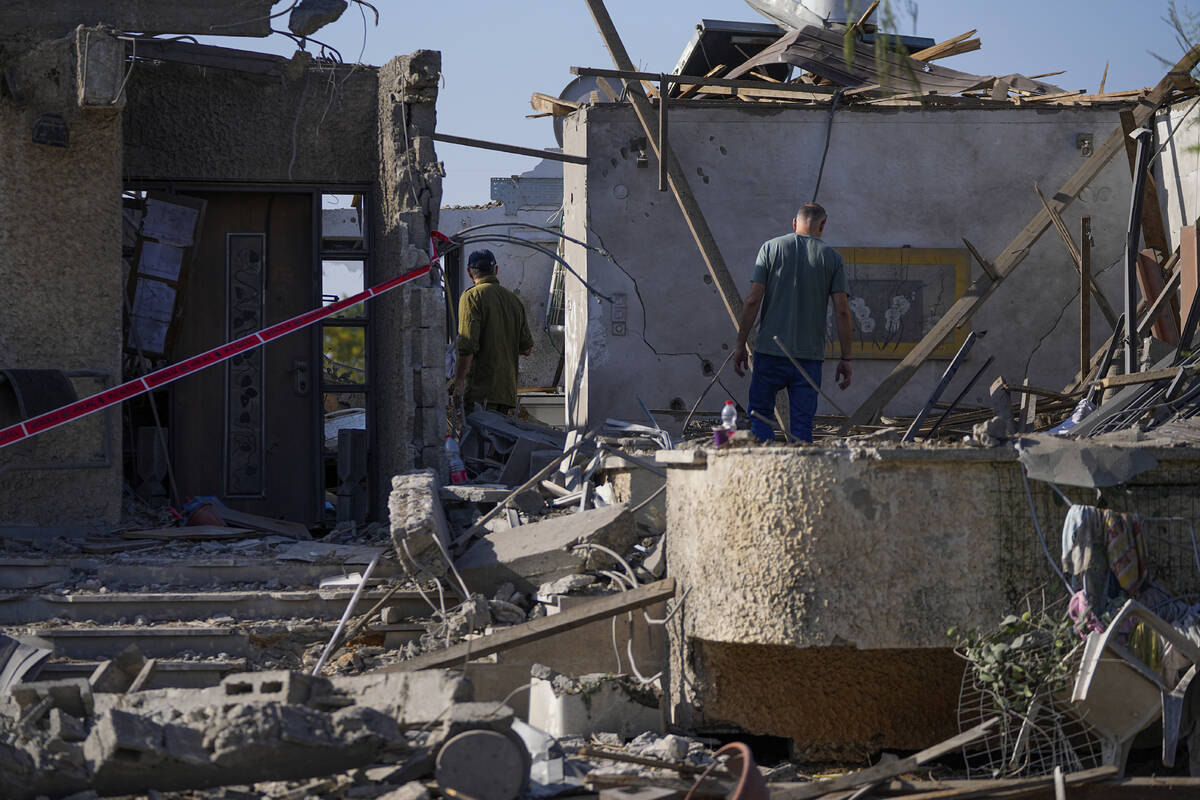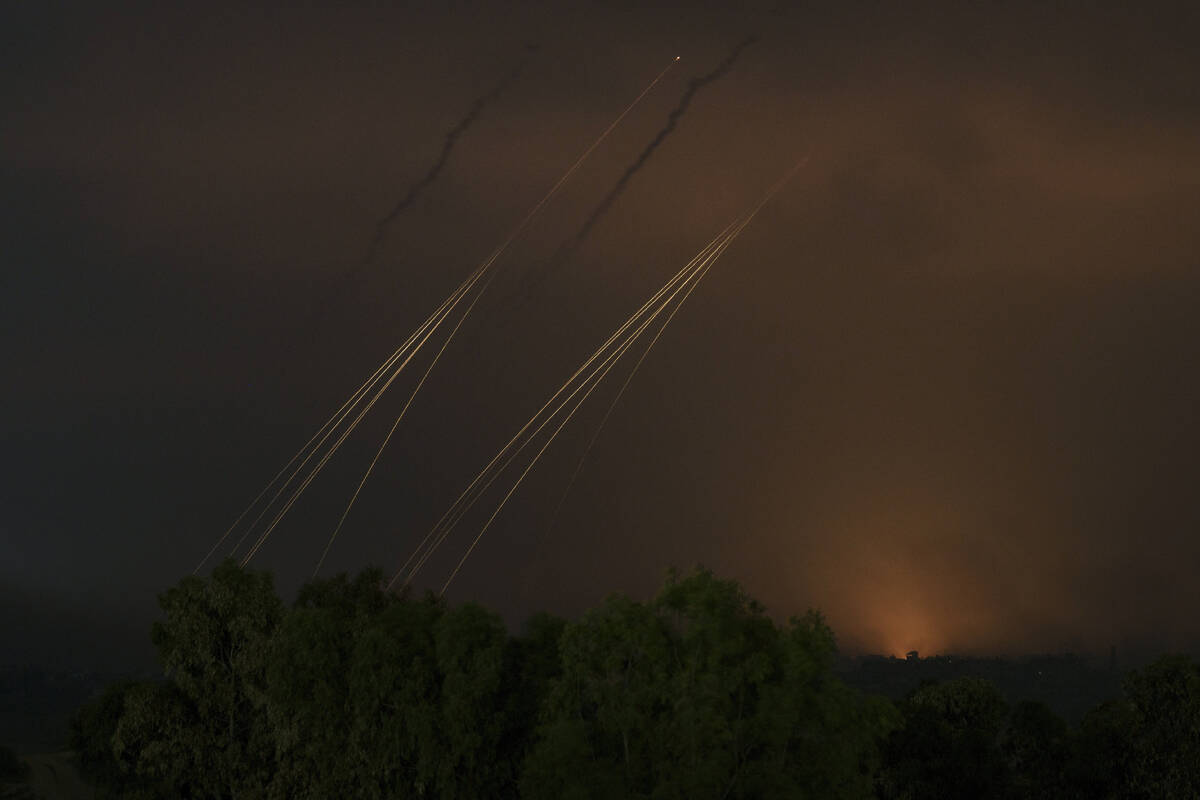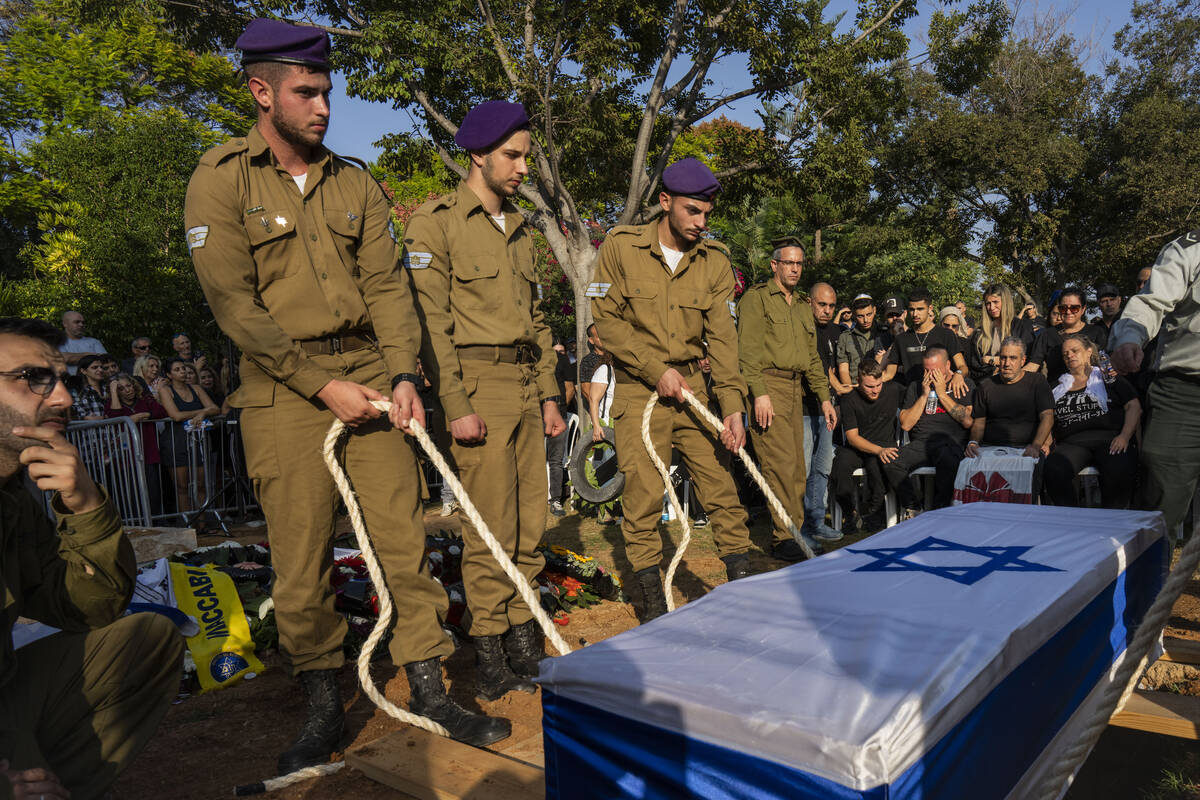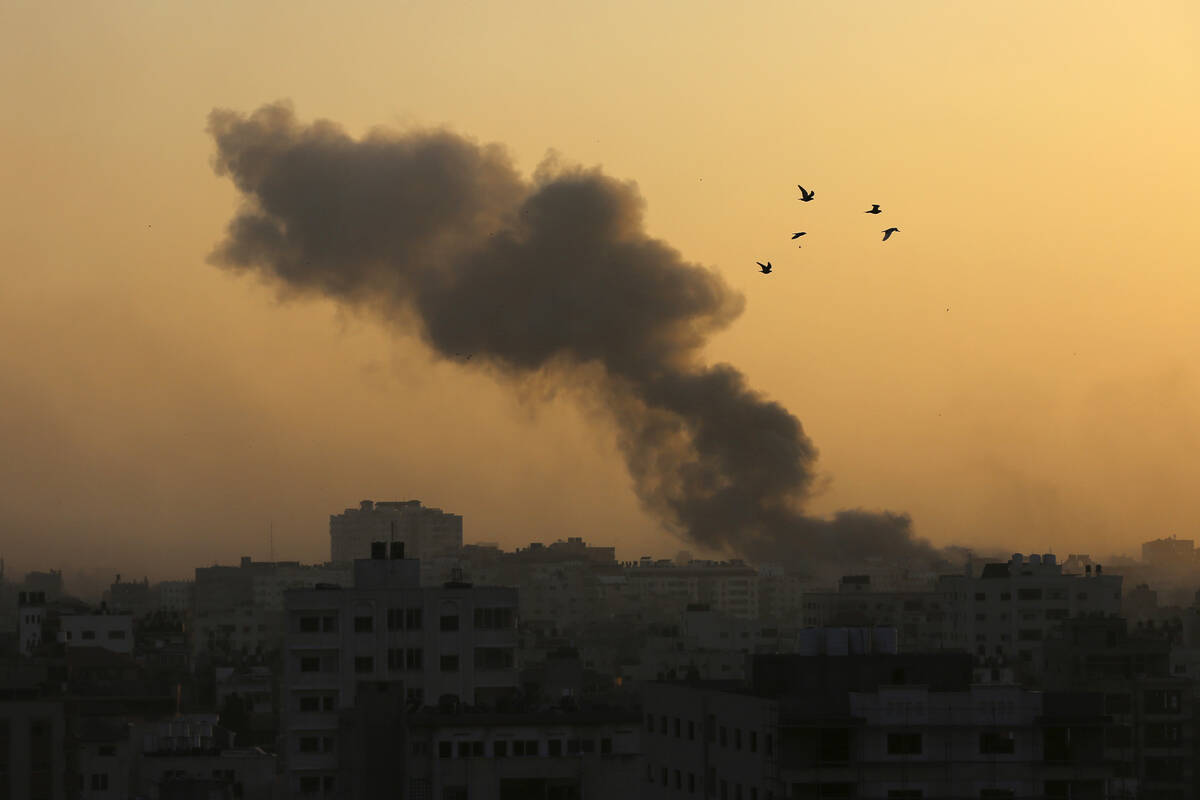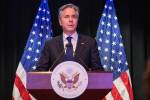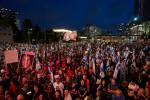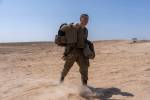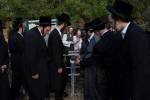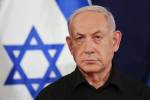Israel’s Netanyahu: No cease-fire in Gaza until hostages released
KHAN YOUNIS, Gaza Strip — The United States urged Israel on Friday to ensure more humanitarian aid gets into Gaza and to do more to protect Palestinian civilians, as Israel’s prime minister said there would be no cease-fire in the nearly month-old war until Hamas releases hostages. The leader of the Iran-backed Hezbollah terrorists stoked fears that the conflict could widen by promising more attacks along the Lebanon border.
Israeli troops tightened their encirclement of Gaza City, the focus of their campaign to crush the enclave’s ruling Hamas terrorists, who launched a brutal attack on Israeli communities that started the war.
But ever since that Oct. 7 terrorist assault, there have been concerns the conflict could ignite fighting on other fronts, and Israel and the Iranian-backed terrorist group Hezbollah have repeatedly traded fire along the Lebanon border.
In his first public speech since the war began, Hezbollah leader Hassan Nasrallah said his group had “entered the battle” with the past weeks’ unprecedented cross-border fighting. “We will not be limited to this,” he said, suggesting possible escalation. Still, Nasrallah stopped short of announcing that Hezbollah is fully engaging in the war.
Secretary of State Antony Blinken, on his third trip to Israel since the war began, reiterated U.S. support for Israel in the war, saying it has the right to defend itself. But he said a “humanitarian pause” was needed to boost aid deliveries to Palestinian civilians amid growing alarm over the humanitarian crisis in Gaza.
After meeting Blinken, Israeli Prime Minister Benjamin Netanyahu said Israel “refuses a temporary cease-fire that doesn’t include a return of our hostages,” referring to some 240 people Hamas abducted during its attack. He said Israel was pressing ahead with its military offensive with “all of its power.”
Blinken said there had to be a substantial and immediate increase in humanitarian aid to Gaza, where “we need to do more to protect Palestinian civilians.” Without that, “there are no partners for peace,” he said, adding that it was critical to restore the path toward a two-state solution to the Israel-Palestinian conflict.
Hezbollah, an ally of Hamas, attacked Israeli military positions in northern Israel with drones, mortar fire and suicide drones on Thursday. The Israeli military said it retaliated with warplanes and helicopter gunships, and spokesman Rear Adm. Daniel Hagari said civilians were wounded in the Hezbollah attacks.
“We are in a high state of readiness in the north, in a very high state of alert, to respond to any event today and in coming days,” he said.
Blinken said the U.S., which has deployed aircraft carriers and other forces in the eastern Mediterranean, was committed to ensuring that no “second or third front” opens in the conflict, referring to Hezbollah.
In his speech, Nasrallah said his militia is not deterred by U.S. warnings, saying: “Your fleets in the Mediterranean … will not scare us.”
A war with Hezbollah would be devastating for both Israel and Lebanon. Hezbollah is much stronger than Hamas, with an arsenal of some 150,000 rockets and missiles, some believed to be precision-guided weapons capable of striking deep inside Israel.
Israel has promised to unleash vast destruction in Lebanon if all-out war erupts, accusing Hezbollah of hiding its military installation in residential areas. The two enemies fought an inconclusive monthlong war in 2006. Renewed fighting could also risk drawing Iran, which backs both Hamas and Hezbollah, into the conflict.
More than 9,200 Palestinians have been killed in Gaza so far, mostly women and minors, and more and than 23,000 people have been wounded, according to the Hamas-run Gaza Health Ministry. No breakdown between civilians and fighters was provided.
More than 1,400 people have died on the Israeli side, mainly civilians killed during Hamas’ initial terrorist attack, when some 240 people were also taken hostage. An estimated 5,400 have also been injured.
Twenty-four Israeli soldiers have been killed in Gaza since the start of the ground operation. Since the start of the war, seven Israeli soldiers and a civilian have been killed in different incidents along Israel’s border with Lebanon.
Blinken’s latest trip
As American officials have before, Blinken pledged unwavering support for Israel and its right to defend itself.
“We stand strongly for the proposition that Israel has not only the right but the obligation to defend itself, and to make sure that October 7 should never happen again,” said Blinken, who also plans to visit Amman, Jordan. It follows President Joe Biden’s suggestion for a humanitarian “pause” in the fighting. The aim would be to let in aid for Palestinians and let out more Palestinians who hold foreign passports and for those wounded.
About 800 people left Gaza over the past two days — the first time people departed the besieged territory other than four hostages released by Hamas and another rescued by Israeli forces.
Blinken first held talks with Netanyahu behind closed doors before starting wider discussions with the leader and his War Cabinet and meeting with President Isaac Herzog.
Israel has allowed more than 260 trucks carrying food and medicine into Gaza, but aid workers say it’s not nearly enough. Israeli authorities have refused to allow fuel in, saying Hamas is hoarding fuel for military use and would steal new supplies.
White House national security spokesman John Kirby said the U.S. was not advocating for a general cease-fire but a “temporary, localized” pause.
Israel and the U.S. seem to have no clear plan for what would come next if Hamas rule in Gaza is brought down — a key question on Blinken’s agenda during the visit, according to the State Department.
Gaza City encircled
Meanwhile, military officials said Israeli forces have now completely encircled Gaza City, a densely packed cluster of neighborhoods that Israel says is the center of Hamas military infrastructure and includes a vast network of underground tunnels, bunkers and command centers.
Israeli forces are “fighting in a built-up, dense, complex area,” said the military’s chief of staff, Herzi Halevy.
Hagari, the military spokesperson, said Israeli forces were in “face to face” battles with militants, calling in airstrikes and shelling when needed. He said they were inflicting heavy losses on Hamas fighters and destroying their infrastructure with engineering equipment.
Hamas’ military wing said early Friday that it battled Israeli troops in several areas in Gaza and claimed they killed four soldiers on the northern edge of the city of Beit Lahiya. It also claimed to have destroyed several tanks with locally made anti-tank rockets.
Neither the reports from Israel nor Hamas could be independently verified.
Casualties on both sides were expected to rise as Israeli troops advance toward the dense residential neighborhoods of Gaza City. Israel has warned residents to immediately evacuate the Shati refugee camp, which borders Gaza City’s center.
Associated Press writers Matthew Lee in Tel Aviv and Julia Frankel in Jerusalem contributed to this report. Mroue reported from Beirut, Rising from Bangkok.



